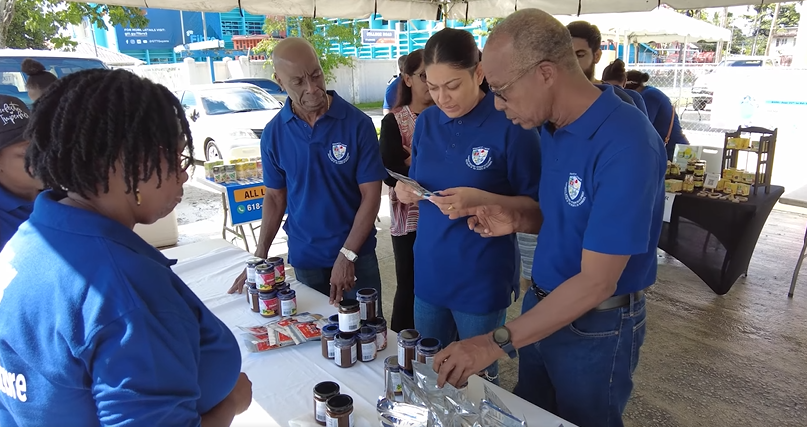The Ministry of Labour hosted a vibrant Co-op Market Day on Saturday morning, marking the start of Cooperative Week observance under the theme “Building a sustainable future.” The event, held on the tarmac of the Ministry of Labour, provided a platform for various co-op societies to display a wide range of locally produced goods.
Visitors had the opportunity to explore an array of products, including cut roses, crafts, skin and hair care items, seasonings, candles, fresh vegetables and fruits, eggs, milk, wine, delightful, sweet treats, salted fish, plantains, a variety of plants, and various beans and peas.
Minister of Labour, Joseph Hamilton, emphasized the significance of the event in showcasing the accomplishments of co-op societies and their potential for growth and sustainability. He expressed his concern over the underutilization of vast tracts of land owned by these societies and stressed the need for support and recognition of their efforts.

“I am saddened daily to the fact that co-op society around the country, they have thousands of acres of land, most of it unproductive and that cannot continue so this activity is one way of bringing them out so to speak and give them national recognition and to recognize that we have an interest in what they are doing and we are prepared to support what they are doing.”
The Minister has reminded that the co-op societies are not charitable organisations, in fact, co-ops are one of the oldest financial institutions in the country, and therefore more can be done to support the people behind this venture.
“They are to make themselves financially independent, they are to participate in activities that can raise serious monies for their members because part of the coop act allows for dividends to be given to members like how people get profit sharing from company A coo-op society can become as powerful financially as any private sector company.”
Furthermore, the Labour Minister emphasized the valuable contribution co-op societies can make to the government’s food security program. He acknowledged the need for comprehensive development in areas such as human resources, training, accounting, and finance to ensure efficient management and successful marketing of products.
“They need a lot of development, human resource development, training, accounting, finance, all of those things because it has to do with management of an entity. Many of them feel that planting and reaping will do it but we have to train them about marketing and promoting.”
Among those who participated were the Guyana School of Agriculture, The Guyana Shop, NARIE.

